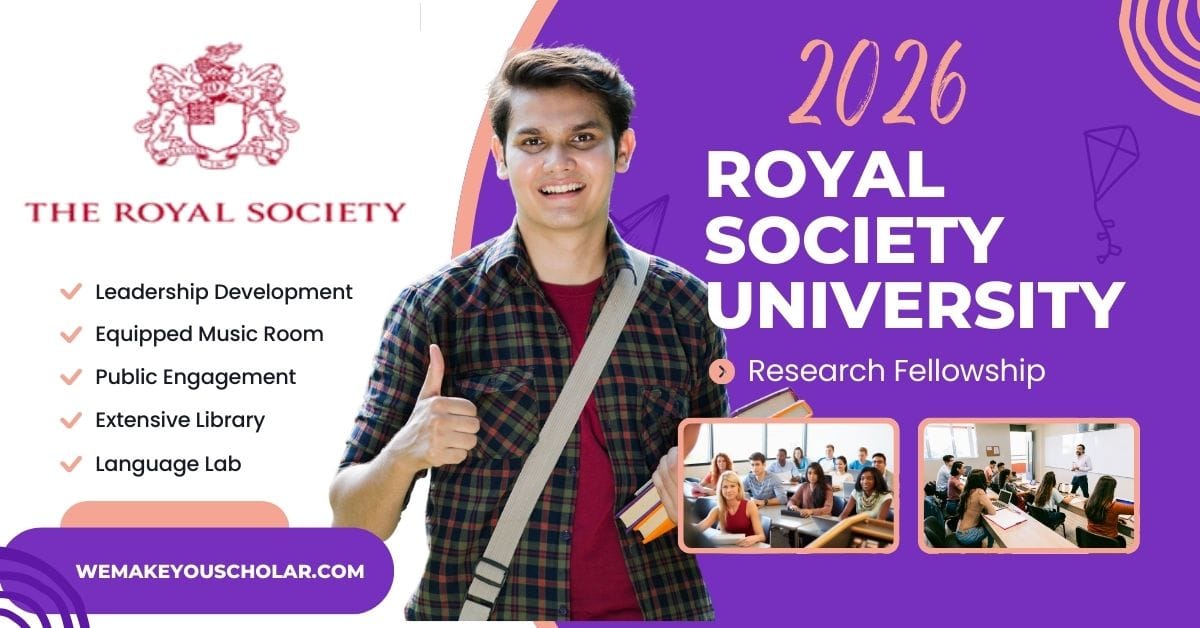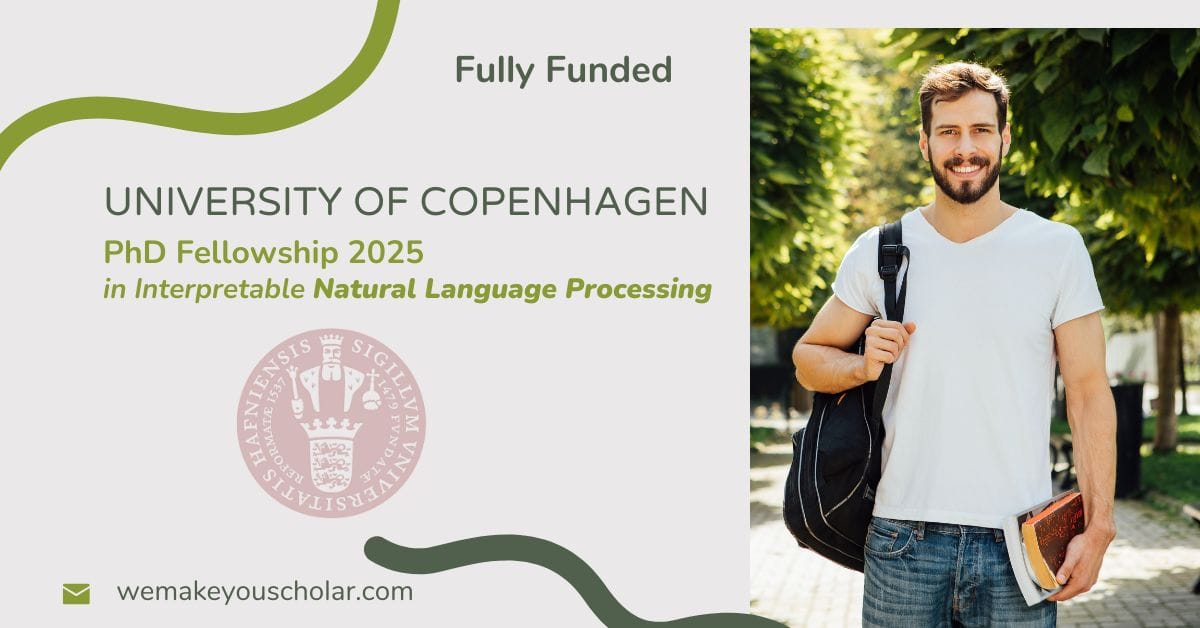Royal Society University Research Fellowship 2026: A Premier Opportunity for Early-Career Scientists
The Royal Society University Research Fellowship (URF) 2026 provides opportunity for early-career researchers in natural sciences. This fellowship provides support to scientists aiming to establish independent research careers in the UK or Ireland.
Fellowship Overview
Host Institutions: UK and Republic of Ireland universities or not-for-profit research organizations.
Duration: Up to 8 years including a review of 4 years.
Funding: Up to £1.87 million for the entire fellowship period.
Application Window: Will be available from July 15 till September 10, 2025.
Final Decision: Will be announced by June 30, 2026.
Eligibility Criteria
Applicants must meet the following conditions:
PhD holder with 3-8 years postdoctoral research experience.
Not currently hold a permanent academic position.
Not have previously held an equivalent fellowship granting independent research group status.
Conduct research within the natural sciences, as defined by the Royal Society.
Be of any nationality.
Non-UK applicants may apply under the Global Talent Visa fast-track route.
Applicants from Ireland will be funded by Science Foundation Ireland and will follow Scholarships for Int’l Students 2025
Fellowship Benefits
The URF offers full support to fellows, such as:
- Salary Contribution: Contribution towards the fellow’s salary.
- Research Costs: Allowance for consumables, travel, and equipment costs.
- Research Support: Research assistants‘ salary.
- PhD Studentship: Allowance for a four-year PhD studentship.
- Relocation and Visa Fees: Assistance for the researcher and dependents.
- Parental and Sick Leave: Assistance for prolonged leave and childcare expenses for conferences.
Career Development and Flexibility
In addition to funding, the Royal Society provides:
Leadership Development: Access to courses developing leadership and communication skills.
Public Engagement: Prospects for prospects in science policy and public outreach.
Flexible Work Arrangements: Part-time work, sabbaticals, and career breaks are options too.
Application Process
- Applications will be submitted through the Royal Society’s Flexi-Grant® system. It is a three-stage process involving:
Eligibility Checks: Initial screening of all applications.
- Panel Reviews: Review by two scientific peers.
- Peer Reviews: Independent assessment for longlisted candidates.
- Shortlisting: Selection for interview.
- Interviews: Held in person at the Royal Society headquarters in London.
Panels are split by discipline: Royal Society
- Panel Ai: Physics, Earth sciences, cosmology, environmental sciences.
- Panel Aii: Chemistry, engineering.
- Panel Aiii: Mathematics, computer science, theoretical physics.
- Panel Bi: Biology, plant sciences, zoology.
- Panel Bii: Biomedical sciences.Royal Society
Commitment to Equity and Accessibility
The Royal Society emphasizes equity, diversity, and inclusion throughout the selection process. Disabled applicants are encouraged to request adjustments, which may include:
Deadline Extensions: Additional time for application submission.
Alternative Formats: Accessible application materials.
Interview Support: Accessibility software or interpreters.
Cost Coverage: Additional expenses related to disability for attending interviews.
Importance of the Fellowship
The URF is more than a grant; it’s a gateway to academic independence. Many past recipients have advanced to tenured positions, gained international recognition, and made significant scientific contributions.
Application Timeline
Applications Open: July 15, 2025.
Application Deadline: September 10, 2025.
Interview Invitations: Early 2026.
Interviews Conducted: Spring 2026.
Final Decision Announcement: By June 30, 2026.
Read More
For more scholarships, please visit wemakeyouscholar.com.




